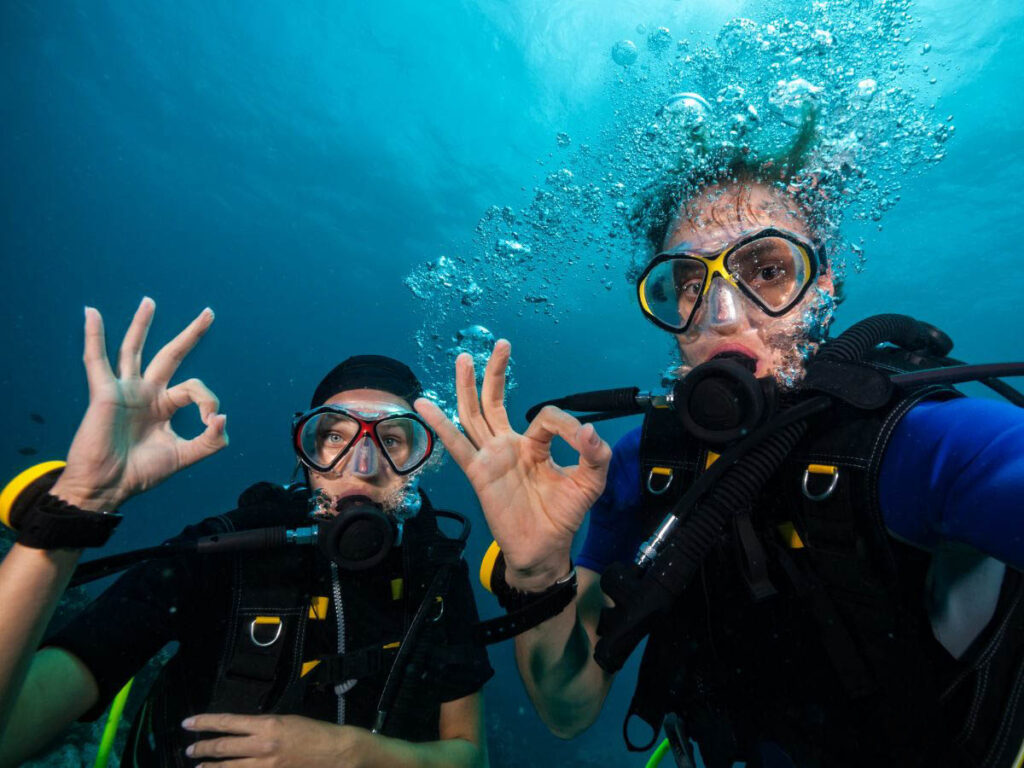Earning scuba instructor certification is a significant milestone, marking the start of a career that combines a love for the underwater world with the joy of teaching others. However, it’s only the first step on a much longer journey. While new instructors leave their training programs equipped with theoretical knowledge and a solid foundation of practical skills, becoming a proficient and commercially successful instructor requires far more than what initial certification provides.
The true art of scuba instruction—balancing safety, effective teaching, and customer satisfaction—is refined over time. For new instructors, the gap between certification and the confidence to teach effectively in diverse real-world situations can feel daunting. To bridge this gap, mentorship from experienced professionals is not just helpful; it’s essential.
The Challenge of Starting Out
Scuba instructor training is designed to prepare candidates for their certification exams, ensuring they meet the necessary safety and instructional standards. But no training program can replicate the nuances of teaching students in dynamic environments. New instructors often face unexpected challenges such as:
- Diverse student needs: Each student learns differently, requiring instructors to tailor their teaching methods to accommodate varying skill levels and learning paces.
- Changing conditions: Unlike the controlled environments used in training, open water diving often presents unpredictable factors like currents, visibility, or weather.
- Professional expectations: Balancing technical instruction with the interpersonal and business aspects of being a scuba instructor is an art that takes time to master.
These factors can be overwhelming for those just starting out. Without guidance, many new instructors struggle to find their footing, risking burnout or losing confidence in their abilities.
Mentorship: A Key to Growth
For a new scuba instructor, mentorship is a game-changer. A mentor provides the benefit of their experience, helping newcomers navigate the complexities of teaching, diving, and working in the industry. More than just a source of advice, a mentor serves as a sounding board, a guide, and often a source of encouragement during challenging times.
The value of mentorship for new instructors lies in several areas:
- Practical teaching strategies: Mentors can share techniques for explaining complex concepts or managing nervous students, helping new instructors refine their approach.
- Adapting to the industry: From building rapport with dive shop owners to managing expectations, mentors guide new instructors in understanding the industry’s unwritten rules.
- Expanding networks: Mentors often have well-established connections, providing new instructors with opportunities to build their reputations and find work.
- Problem-solving support: When faced with difficult situations, a mentor’s perspective can provide clarity and solutions that might not be obvious to a newcomer.
Building Confidence Through Experience
Consider a newly certified instructor, Alex, who starts teaching at a busy dive center. Despite excelling during their training, Alex struggles with larger classes and challenging dive conditions. The initial enthusiasm begins to wane as doubts set in about whether this career is the right fit.
Enter mentorship. Alex begins working under a seasoned instructor who shares strategies for managing group dynamics, calming anxious students, and responding to unexpected changes in dive conditions. This mentor observes a few classes, offering feedback and helping Alex build confidence through practical adjustments.
With time, Alex grows more comfortable and begins receiving positive feedback from students. Word spreads, and Alex develops a strong reputation for clear instruction and a calm, professional demeanor. What began as a period of uncertainty transforms into a period of growth—all because of the support and guidance of a mentor.
Why Mentorship Benefits the Entire Industry
The value of mentorship extends beyond individual instructors. When mentors help new instructors succeed, the benefits ripple through the entire diving community. Students receive better training, which improves safety and enhances their enjoyment. Dive centers gain reliable, capable instructors who contribute to their success. The industry grows stronger as skilled professionals set high standards for safety and instruction.
Mentorship also fosters a culture of collaboration and support within the diving community. Instead of viewing new instructors as competitors, experienced professionals who take on mentorship roles contribute to the long-term health of the industry, ensuring that knowledge and best practices are passed down to the next generation.
How to Find a Mentor
For new instructors seeking to grow in their careers, finding the right mentor is essential. Many dive shops and training agencies encourage mentorship by pairing new instructors with more experienced colleagues. Networking at dive events, joining professional groups, or simply reaching out to respected instructors in the community can also open doors to mentorship opportunities.
One dive training agency that actively promotes mentorship as part of its philosophy is DiveISC. By encouraging experienced professionals to guide and support new instructors, the agency ensures that its instructors are not just technically competent but also commercially successful and capable of creating positive student experiences.
A Final Word
Becoming a successful scuba instructor requires more than just certification—it demands ongoing learning, adaptation, and growth. Mentorship bridges the gap between training and real-world teaching, providing new instructors with the tools they need to excel. For those starting out, seeking guidance from experienced professionals is not just a step toward professional development; it’s a foundation for long-term success.
With the support of a mentor, new instructors can transform their potential into expertise, gaining the confidence to inspire their students and the skills to thrive in the competitive diving industry.







